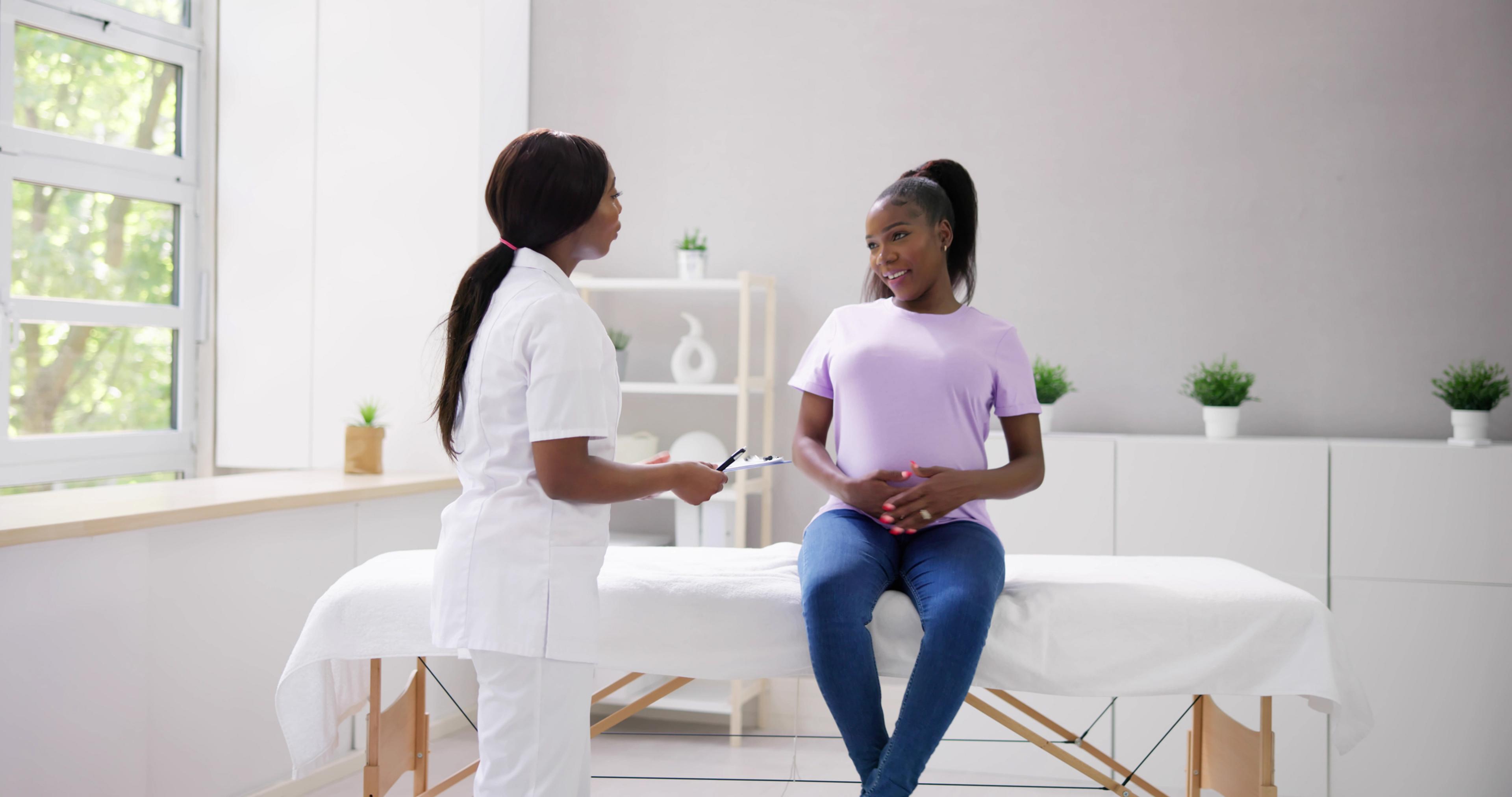Signs of Endometriosis: How to Talk to Your Doctor
Amy Barczy
| 4 min read
Amy Barczy is a former brand journalist who authored content at Blue Cross Blue Shield of Michigan. Prior to her time at Blue Cross from 2019-2024, she was a statewide news reporter for MLive.com. She has a decade of storytelling experience in local news media markets including Lansing, Grand Rapids, Holland, Ann Arbor and Port Huron.

More than 11% of women in the U.S. between the ages of 15 and 44 are affected by endometriosis – a painful condition that occurs when tissue similar to the lining of the uterus grows in other places in your body. The condition is linked with infertility, as 30% to 50% of women with endometriosis are also unable to get pregnant.
The number of women affected by endometriosis may be much larger than that. Ongoing stigma surrounding women’s health, including reluctance to talk about painful periods, may keep some women from bringing their concerns to their doctors.
Awareness of endometriosis has been growing in recent years, as female celebrities have been going public with their health struggles in the hopes that it helps more women feel empowered to talk to their doctors about their own symptoms. Recently, Bindi Irwin – daughter of the late “crocodile hunter” Steve Irwin – shared her decade-long battle with endometriosis:
“For 10yrs I’ve struggled with insurmountable fatigue, pain & nausea,” Bindi Irwin wrote in an Instagram post. “Trying to remain a positive person & hide the pain has been a very long road…A doctor told me it was simply something you deal with as a woman & I gave up entirely, trying to function through the pain.”
Bindi Irwin joins a growing list of high-profile women talking about their endometriosis diagnosis, including Susan Sarandon, Whoopi Goldberg, Jillian Michaels, Lena Dunham, Padma Lakshmi, Cyndi Lauper, Tia Mowry and Halsey.
While endometriosis – or “endo” – is not cancerous, the growths are very painful and over time, can cause complications and health issues for women.
Signs and symptoms of endometriosis include:
- Pain, including very painful cramps, long-term pain in the lower back and pelvis and pain during or after sex. Pain in the intestines, painful bowel movements or pain while urinating during a period are also symptoms. In rare cases, there may be blood in your urine or stool.
- Bleeding or spotting between periods. Talk to your doctor if this happens often, because this could be caused by more than one condition.
- Infertility, or not being able to get pregnant.
- Stomach or digestive problems, including diarrhea, constipation, bloating, or nausea, especially during periods.
The most common symptom of endometriosis is acute pain in the lower back and pelvis. The condition is so painful because the tissue that grows outside of the uterus – where it doesn’t belong – often still acts like the lining of the uterus, and the growths may swell and bleed during your period. This can cause swelling and pain in the body, as the tissue grows and bleeds – yet there’s no path for the blood to escape the body.
As the tissues grow and expand, they can cause further problems, including:
- Inflammation and swelling.
- Covering or growing into the ovaries, which can cause blocked fallopian tubes and cysts on the ovaries.
- Scar tissue and adhesions that can bind organs together, which can cause pain. This can also change the shape of your reproductive organs, making it harder to get pregnant as sperm have a difficult time finding the egg.
- Problems in your intestines and bladder.
How to talk to your doctor
Women who have symptoms of endometriosis should talk with their doctor about their individual experience. It may help to prepare yourself for this appointment so that you are able to clearly communicate with your doctor about how severe the pain is and how deeply it is impacting your life. Here are some tips:
- Start a pain journal: Track your pain symptoms every day, including dates, times, how long the pain lasts, where the pain is and how intense it is. Also track how your pain impacts your life: does it cause you to miss work or school? Does it make it hard to sleep? Bring this to your appointment with you.
- Create a list of questions for your doctor and bring it with you to your appointment. Make sure you leave the appointment with a treatment plan, or a referral to a specialist or another doctor.
- When you talk to your doctor, be as specific as possible about your systems. Use descriptive words to talk about your pain – like “sharp” and “knife-like,” for example. Tell them how many days a month you feel this; and whether it coincides with your period or not.
Your doctor may likely conduct a pelvic exam and consider an imaging test like an ultrasound to make a diagnosis. If there are no signs of an ovarian cyst, the doctor can prescribe hormonal birth control to lessen pelvic pain. They may also suggest an intrauterine device (IUD) to reduce pain and bleeding.
Women who are trying to get pregnant may receive a medication to assist in managing their period to give them a greater potential for getting pregnant.
Individuals with severe endometriosis may require more invasive treatment like surgery. It’s a joint decision often made by the patient, their gynecologist and a specialist who manages infertility and reproductive endocrinology.
Photo credit: Getty Images





